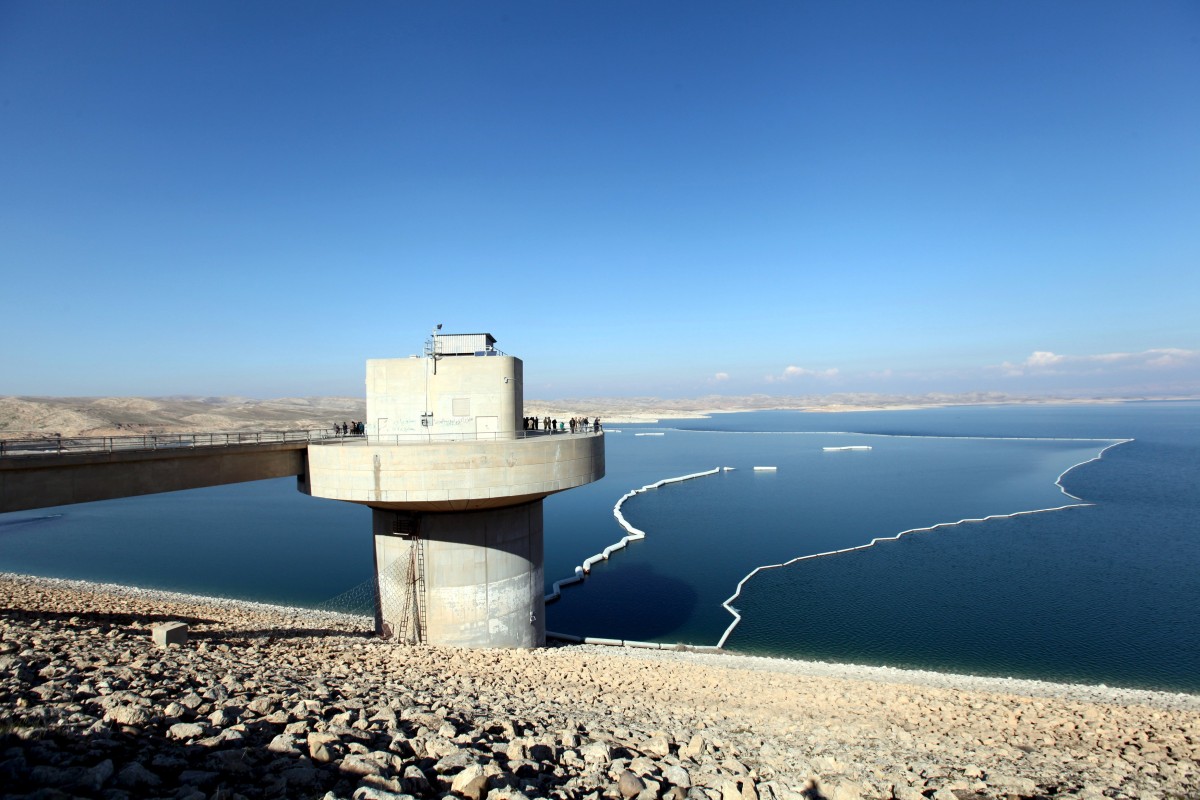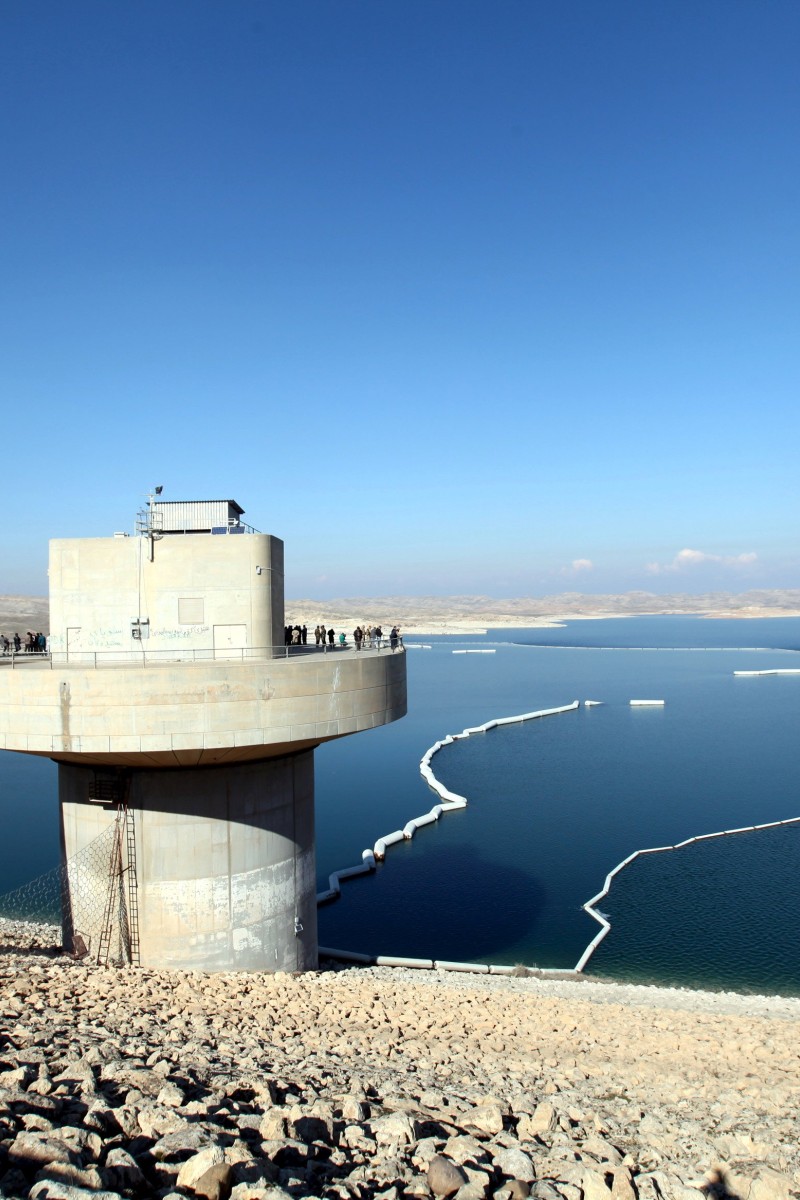 A view of the section of Mosul dam which is close to collapse, in northern Iraq.
A view of the section of Mosul dam which is close to collapse, in northern Iraq.Iraqi engineers are warning that a dam which sits just above the bustling city of Mosul in Iraq is ready to burst. If that happens, hundreds of thousands of people may die.
"All we can do is hold our hearts," said Nasrat Adamo, the dam’s former chief engineer in an interview from Switzerland.
The engineers, who built the Mosul dam 30 years ago, said the pressure on its weak wall was getting worse as winter snows melt and more water flows into the reservoir.
The gates which are normally used to flush water downstream are jammed shut, and the dam is built on rock which dissolves in water.
About a year ago, the dam was in the control of IS, or Islamic State as they like to be known. Since then, IS has been pushed out of the area, but workers are too frightened to return. Also, the machinery which the dam needs to keep the gates clear has not been maintained.
With no one able to keep up the repairs, the holes underneath the dam are getting bigger. The government has still not signed a contract with an Italian building company to fix it.
The engineers warn that more than 500,000 peole could die if the dam fails. They believe a 20-metre-high flood wave would hit the city of Msoul and roll ono down the Tigris valley, through Tikrit and Samarra to Baghdad. There would be mass panic among the people living under the dam which would cause even more deaths.
Adamo said the government’s emergency policy of telling local people to move 6km from the river banks was "ridiculous". He spent most of his professional life working to keep the dam in tact, but since the Is occupation, this has not been possible.
"We used to have 300 people working 24 hours in three shifts but very few of these workers have come back. There are perhaps 30 people there now," Adamo said in a telephone interview from Sweden, where he works as a consultant.
The rock on which the dam is built is gypsum, which dissolves in water, leaving deep channels under the dam which have to be constantly filled in a process known as grouting.
"The machines for grouting have been looted. There is no cement supply. They can do nothing. It is going from bad to worse, and it is urgent. All we can do is hold our hearts," Adamo said.
Giant gates that would normally be used to ease the pressure by allowing water to run through are stuck.
"One of them is jammed, and when one of them is closed the other one has to be closed. They must work together," Adamo said. "Otherwise, you get asymmetric flow and that speeds up the erosion."
Nadhir al-Ansari, another Iraqi engineer, also warned of the danger. "If the dam fails, the water will arrive in Mosul in four hours. It will arrive in Baghdad in 45 hours. Some people say there could be half a million people killed, some say a million. I imagine it will be more in the absence of a good evacuation plan."
He said the government policy response , calling on the local population to move at least 6km from the river Tigris, was "ridiculous".
The US embassy in Baghdad has urged American citizens to leave the area.
"What are all these people, millions of people, supposed to do when they get 6km away? There is no support for them there. Nothing to help them live."
"Nobody knows when it will fail," Adamo said. "It could be a year from now. It could be tomorrow."
